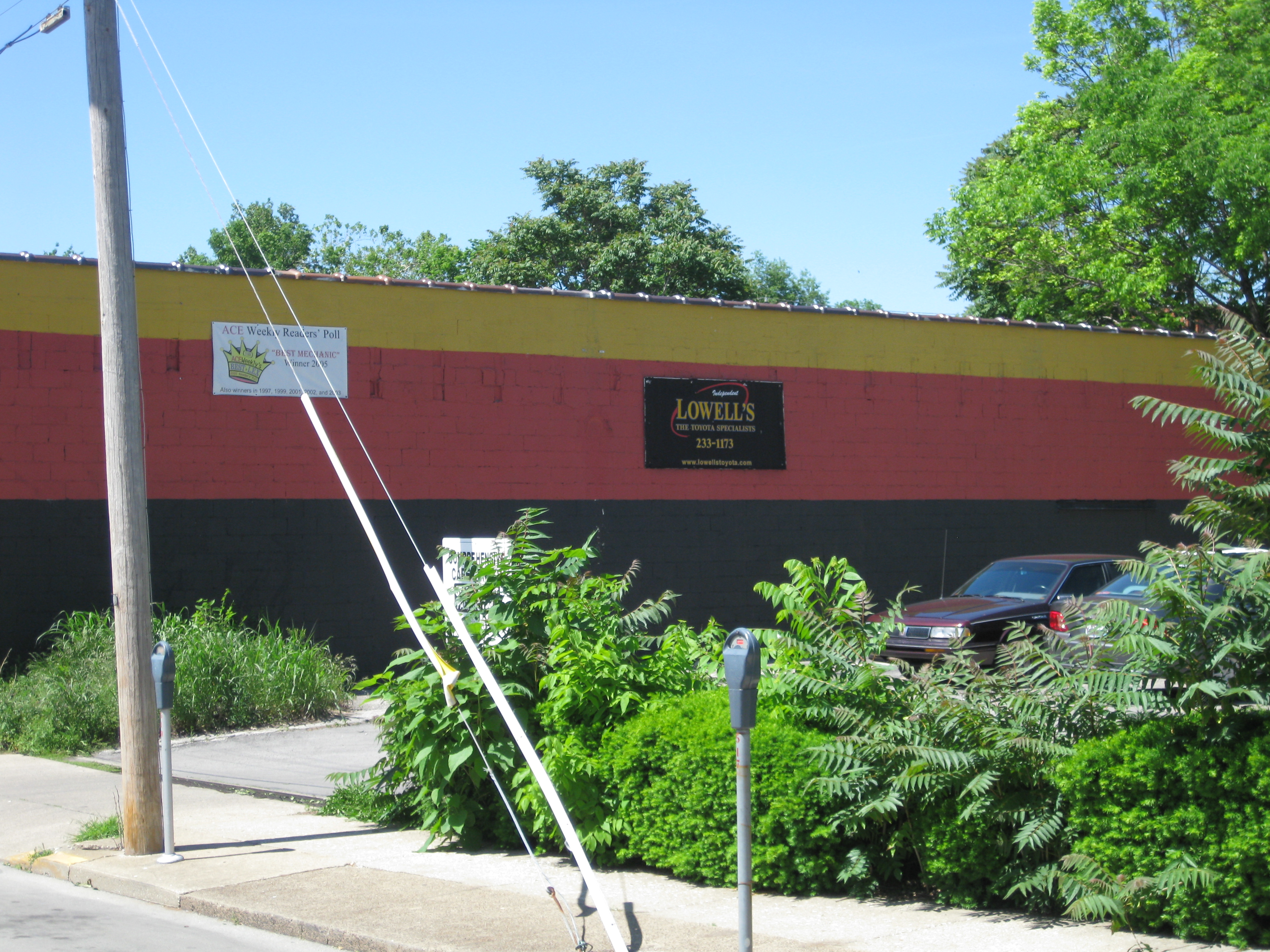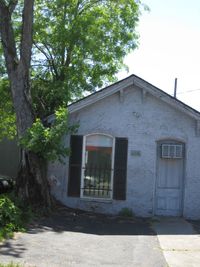
Comprehensive Care Parking Lot
Every morning when I walk into work at Lowell’s, I see 8-foot-tall tree-weeds growing through unkempt hedges and spilling over into the public sidewalk. I see a planter adjoining our building, burgeoning with weeds and grass and the massive stump of a long-dead tree. I see a pitted, crumbling parking lot with clogged drainage.
Many customers assume it is our lot. It does adjoin our building. And they can’t see the sign declaring “Comprehensive Care Center Parking Only”.
Across the street I see a tiny old shotgun house with a gigantic half-rotted tree looming ominously over both the house and the main Lowell’s parking lot. After the ice storm and other storms this spring, downed branches lay in the asphalt front yard of the house. For over two months.
Absentee owners neglect both properties. Neighboring businesses have conducted the most of the maintenance on the properties over the past couple of years. In effect, they are abandoned.
As a business owner, I worry about the effect it has on Lowell’s famously loyal customers. Even if they cherish us and the service we provide, I’m genuinely concerned about the ability of such eyesores to repel visitors to the shop.
I often talk with nearby business owners, who share my concern for the negative effects of these properties on our neighborhood.
* * *
Many folks have wondered why I have been so vocal on the CentrePointe mess. There are many reasons, but one of the biggest is that the abandoned properties surrounding Lowell’s have given me firsthand experience the negative effects of blight like the CentrePointe scar.
There are many such highly-visible, blighted, non-productive and apparently abandoned properties in Lexington: CentrePointe in Downtown, Lexington Mall on Richmond Road, and Continental Inn on New Circle at Winchester are some of the most apparent. But there are numerous smaller examples littering our city.
Just like the properties surrounding our shop, the absentee owners seek to avoid any and all expenses. They avoid capital gains taxes by refusing to sell their properties. They avoid maintenance expenses by refusing to invest to make their properties economic contributors to the community. They avoid property taxes by refusing to improve their decrepit real estate.
Such abandoned properties generate near-zero direct contributions to the economy. Moreover, they generate negative economic effects for surrounding properties and businesses: They drive away business and drive down property values.
* * *
It is time for such neglect to end. It is time to make sure that lazy landowners are motivated 1) to improve their holdings and 2) to transform their properties into contributors to our community’s economic engine.
My modest proposal: Implement a ‘blight tax’. Lexington landownders whose property qualifies as ‘blighted’ would have to pay a moderately severe annual blight tax.
The definition of ‘blighted’ would need to be worked out, but should include an assessment of the property condition, as well as proof of substantial progress on needed improvements. We could start with Division of Code Enforcement standards.
To overcome their avoidance of maintenance expenses, property taxes, and/or capital gains taxes, I’d propose that the blight tax have some teeth: Say, 35% to 50% of assessed property value per year.
In the CentrePointe case, the blight tax would generate $8 to $12 million per year of revenue to the city until the developers improve their land. When historical buildings were demolished to make way for CentrePointe, many rationalized that the old buildings were greater eyesores than the pit which remains today. I disagree. But a blight tax may also have helped prevent the demolition-by-neglect which occurred on that block over the years.
I would imagine the former Lexington Mall and Continental Inn properties would generate amounts similar to CentrePointe, given their sizes and their locations on busy thoroughfares.
Such tax revenue could be specifically allocated to offsetting the effects of blight: community improvements to sidewalks, bike paths, streetscapes, parks, community centers, business incubators, community ventures, and the like. If property owners avoid the blight tax by making their properties more valuable (i.e., by improving them), then all the better.
To create a vibrant city, we need to ensure that Lexington doesn’t have the economic scars that blight leaves behind: dead spots which contribute little (or which actually destroy) monetary value in our community.
My proposal is the blight tax. What’s yours?


It’s ironic that a home owner downtown can be fined for not cutting the grass in the back yard, completely removed from sight (which happened to a friend in lex), but demolition-by-neglect goes unpunished, and centrepite is welcomed. It’s frustrating that people who do care about the quality of life downtown have to live amongst these properties that aren’t cared for, contribute nothing to our city, and are owned by people (like the webbs) who show such obvious contempt for our neighborhood. Thank you for brainstorming solutions.
Pingback: The Treeds Experiment | CivilMechanics